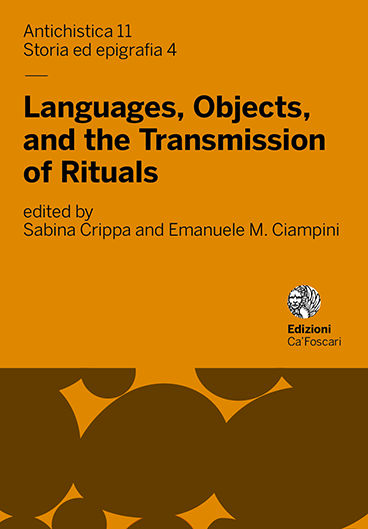Series |
Antiquity Studies
Edited book | Languages, Objects, and the Transmission of Rituals
Chapter | Protective Statues for Home and Workshop
Protective Statues for Home and Workshop
The Evidence for Cross-Cultural Contact in the Greek Magical Papyri
Abstract
The Greek magical papyri, especially the longer handbooks from Upper Egypt, reflect a good deal of cross-cultural mixture, but often this is not some form of free association, but rather a series of additions to or translations of one culture’s traditional ritual or ritual object in order to adapt or update it to new circumstances. This process is especially apparent in two recipes in the famous Paris Magical Papyrus (PGM IV) for small wax statuettes designed to protect or prosper houses or shops. In each case, the creator of the recipe begins with a well known domestic talisman drawn from a single cultural tradition – an image of the Egyptian god Pantheos or the Roman god Mercury with his money sack – and then adds divine names or details drawn from other traditions that reveal the cross-cultural currents in the late-antique environment in which he worked. These additions are, moreover, often acts of translation, for example, renaming the god depicted or giving him a new epithet.
Submitted: Nov. 8, 2016 | Accepted: Dec. 8, 2016 | Published July 12, 2017 | Language: en
Keywords Amulets • Statuettes • Egyptian • Protection • Prosperity • Gemstones • Greek magical papyri • Cross-cultural mixture
Copyright © 2017 Christopher A. Faraone. This is an open-access work distributed under the terms of the Creative Commons Attribution License (CC BY). The use, distribution or reproduction is permitted, provided that the original author(s) and the copyright owner(s) are credited and that the original publication is cited, in accordance with accepted academic practice. The license allows for commercial use. No use, distribution or reproduction is permitted which does not comply with these terms.
Permalink http://doi.org/10.14277/6969-180-5/ANT-11-6
